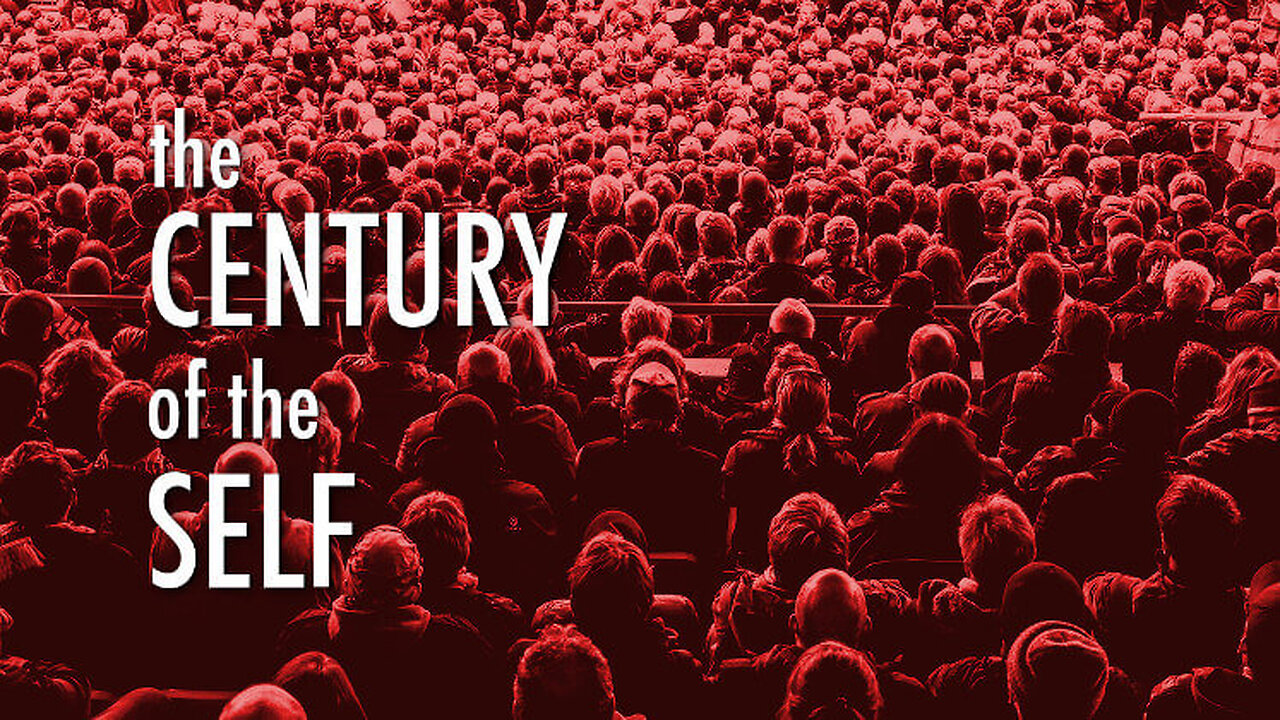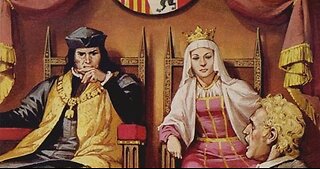Premium Only Content

The Century of the Self | Happiness Machines (Episode 1)
A 2002 British television documentary series by filmmaker Adam Curtis examining how Freudian theory influenced twentieth century society.
Sigmund Freud, the founder of psychoanalysis, changed our perception of the mind and its workings. The documentary explores the various ways that governments, global organizations and corporations have used Freud's theories. Freud and his nephew Edward Bernays, who was the first to use psychological techniques in public relations, are discussed in part one. His daughter Anna Freud, a pioneer of child psychoanalysis, is mentioned in part two. Wilhelm Reich, an opponent of Freud's theories, is discussed in part three.
In episode one, Curtis says, "This series is about how those in power have used Freud's theories to try and control the dangerous crowd in an age of mass democracy."
Along these lines, The Century of the Self asks deeper questions about the roots and methods of consumerism and commodification and their implications. It also questions the modern way people see themselves, the attitudes to fashion, and superficiality. The business and political worlds use psychological techniques to read, create and fulfill the desires of the public, and to make their products and speeches as pleasing as possible to consumers and voters. Curtis questions the intentions and origins of this relatively new approach to engaging the public. Where once the political process was about engaging people's rational, conscious minds, as well as facilitating their needs as a group, Stuart Ewen, a historian of public relations, argues that politicians now appeal to primitive impulses that have little bearing on issues outside the narrow self-interests of a consumer society.
The words of Paul Mazur, a leading Wall Street banker working for Lehman Brothers in 1927, are cited: "We must shift America from a needs- to a desires-culture. People must be trained to desire, to want new things, even before the old have been entirely consumed. [...] Man's desires must overshadow his needs."
Episode 1. The story of the relationship between Sigmund Freud and his American nephew, Edward Bernays. Bernays invented the public relations profession in the 1920s and was the first person to take Freud's ideas to manipulate the masses. He showed American corporations how they could make people want things they didn't need by systematically linking mass-produced goods to their unconscious desires.
Bernays was one of the main architects of the modern techniques of mass-consumer persuasion, using every trick in the book, from celebrity endorsement and outrageous PR stunts, to eroticising the motorcar. His most notorious coup was breaking the taboo on women smoking by persuading them that cigarettes were a symbol of independence and freedom. But Bernays was convinced that this was more than just a way of selling consumer goods. It was a new political idea of how to control the masses. By satisfying the inner irrational desires that his uncle had identified, people could be made happy and thus docile. It was the start of the all-consuming self which has come to dominate today's world.
-
 29:10
29:10
Adaneth - History&Politics
1 month agoFerdinand V and Isabella: Spanish Monarchs
88 -
 LIVE
LIVE
StuffCentral
3 hours agoBariety Stream, plus DTDUB's MK11 Tourney!
74 watching -
 1:04:58
1:04:58
Sarah Westall
4 hours agoRiot & Chaos – Comparisons to 2020: Planned Unrest & Division w/ Maryam Henein
15.7K19 -
 LIVE
LIVE
GamerGril
3 hours agoUltimate Zombie Slayer | GamerGril | Days Gone
179 watching -
 23:09
23:09
MYLUNCHBREAK CHANNEL PAGE
7 hours agoMilitary Sites Stole The Old World - Pt 3
40.8K26 -
 1:50:50
1:50:50
The Quartering
5 hours agoNo Kings Assassin Takes Out 4 Democrats! The Left Is Out Of Control!
96.5K168 -
 LIVE
LIVE
FrizzleMcDizzle
4 hours ago $0.13 earnedCan you survive 3 nights in Nightreign?
52 watching -
 LIVE
LIVE
Turning Point USA
7 hours agoYWLS 2025 is LIVE! Hear from Riley Gaines, Charlie Kirk, Bethany Hamilton, Savannah Chrisley & more!
758 watching -
 4:34:54
4:34:54
SternAmerican
1 day agoFlag Day 2025: Voices of Valor – Honoring America’s Heroes – Saturday, June 14 at 2:00 PM EST
47.7K11 -
 LIVE
LIVE
Misfit Electronic Gaming
2 hours ago $0.11 earned"LIVE" Road to 1000 ONLY 72 to GO!! Misfit Plays "7 Days to Die" For the First Time.
25 watching